Welcome to the world of parenthood! If you are a first-time parent, then you’ve been looking forward to this time of your life for months, maybe even years. But, believe it or not, parenthood is no cakewalk, and being prepared ahead of time is the best thing to do. Experienced parents you know, including your own, would have already warned you just how exhausting—even if happy—the first few months with your newborn can be. After all, from breastfeeding multiple times during the day (and the night) to changing diapers and cleaning your newborn carefully, there’s a lot to do!
So, if you’ve been wondering about all the essentials you need to take care of your newborn, look no further. Here is a guide about everything you need to know, a complete checklist you can rely on during those first few weeks with your bundle of joy.
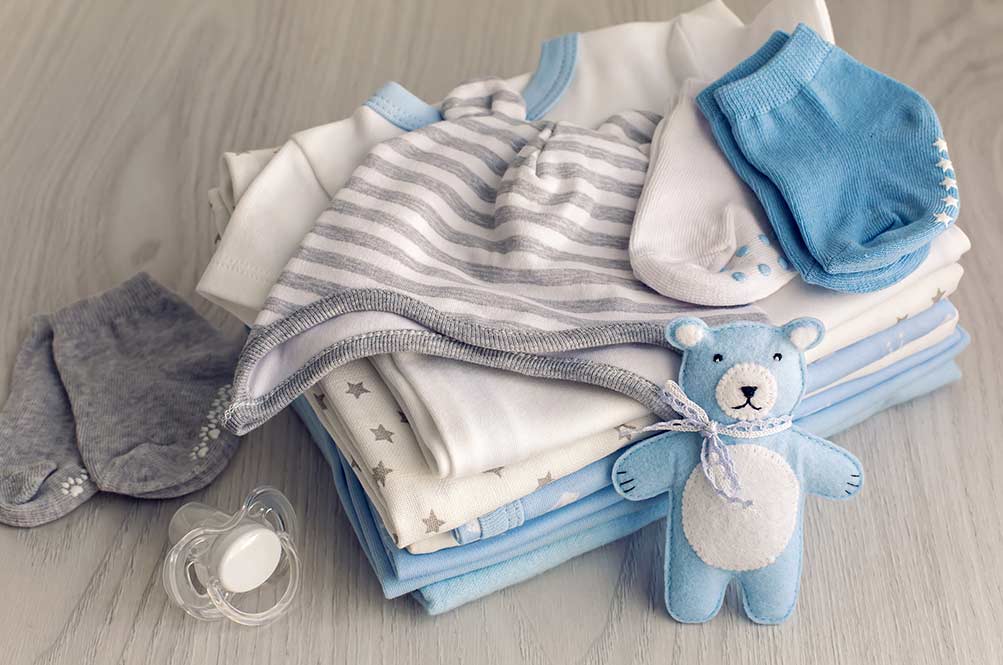
Wardrobe Essentials For Your Baby
Is there anything cuter than a trendy, teeny-tiny onesie for your baby, or a couple of bootees to keep their little feet warm? Of course not, but you have to resist the temptation to buy too many of these, because a newborn will grow out of these very quickly. Instead, focus on stocking up on the following wardrobe essentials recommended by the UK’s National Health Services (NHS):
• Six-eight onesies with soft envelope folds around the crotch for easy diaper changes
• Four to eight shirts with front open, made of cotton or soft fabrics
• Four to eight full-length pants, made of cotton or soft fabrics
• Four to eight pairs of socks or bootees
• Four soft hats
• Two soft blankets or swaddle cloths
• Soft woollen cardigans if the weather is cold
Make sure the clothes aren’t too loose, otherwise there may be a danger of suffocation as the baby moves. The NHS says there is no evidence that using washing powders can irritate the skin of your baby, but do make sure you disinfect the clothes properly and dry them in the sun to ensure safety.
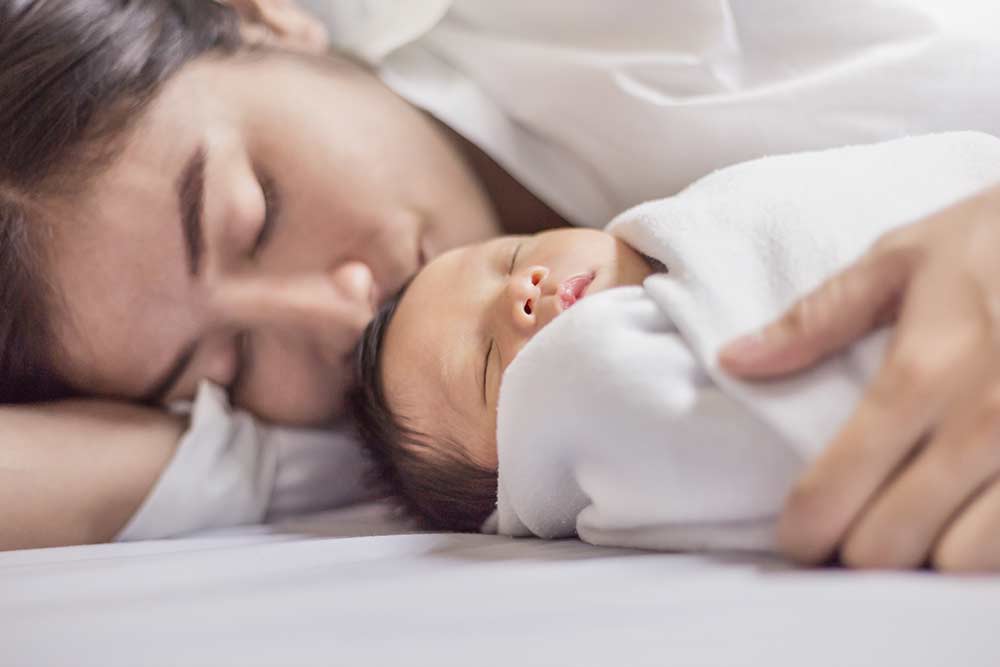
Nursing Essentials For Your Baby
You may also wonder about your baby’s bedding at this point, but the thing to keep in mind is that your baby needs a safe and warm place not very far away from you. Even if you’re setting up a nursery, make sure it hasn’t been painted too recently as the paint fumes may be harmful. Whether you’re co-sleeping (sharing the same bed) or using a crib for your baby, the following are some things you will definitely need:
• A crib, cradle or bassinet
• A firm, flat mattress that fits into the above
• Waterproof sheets
• Fitted cloth sheets
• A changing table or firm area allocated for diaper change
• A baby monitor (optional)
The NHS recommends not to use too many pillows, blankets or duvets for your baby to keep the risk of suffocation at bay. Use a firm mattress and ensure that the bedding is dry and clean. The room where the baby stays should be clean and properly ventilated. Prevent any damp in the room.
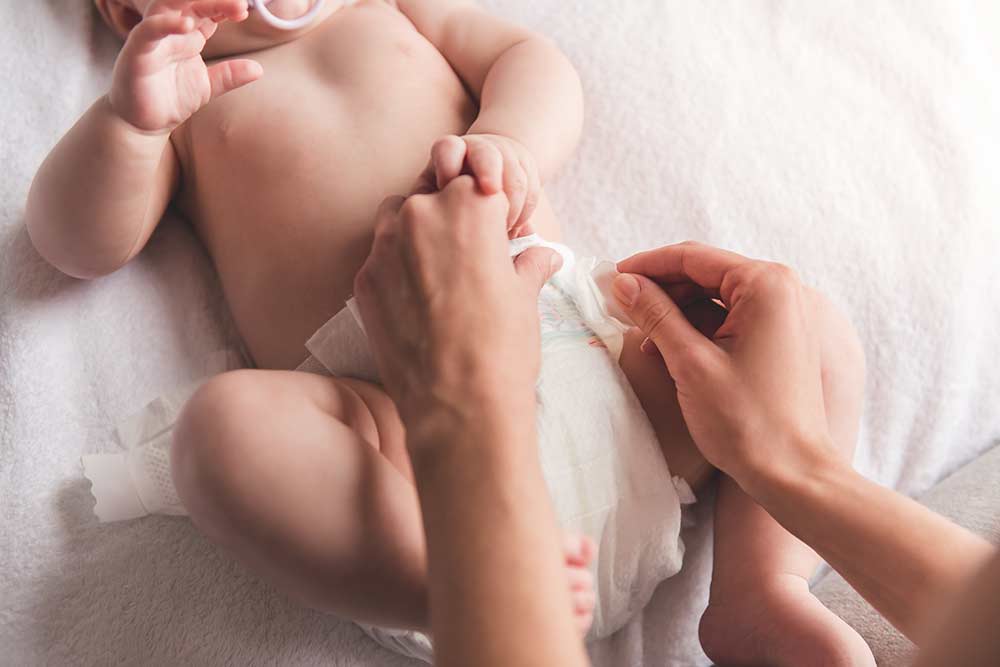
Baby Diapering Essentials
Babies need a frequent diaper or nappy changes, which means you not only have to stock up on those but also make a very important choice. Do you want to go for disposable baby diapers, which are convenient but expensive and not eco-friendly at all? Or do you want to go the way your grandparents did and use reusable cloth nappies which are less expensive, sustainable and soft enough to reduce the risk of diaper rashes? Whichever choice you make, here are some other diapering essentials you must keep in handy:
• Two-three packs of newborn-size diapers (always keep backups)
• Six-eight clean and disinfected cloth nappies
• Packs of baby wipes, unscented
• Soft cotton cloth for eco-friendly baby wipes
• A diaper bag
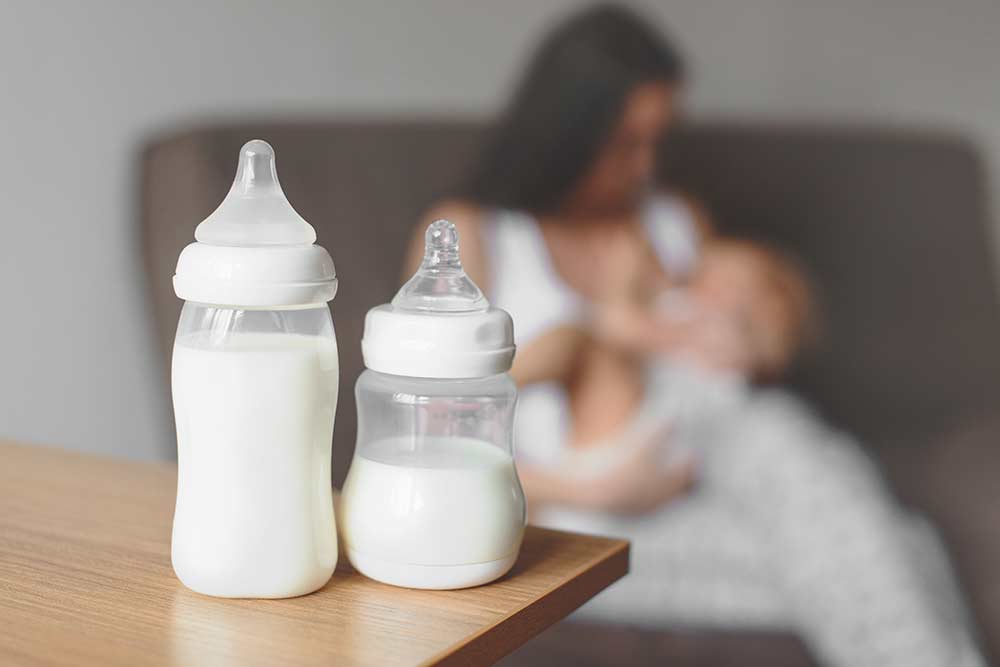
Feeding essentials
The World Health Organisation (WHO) says that breastfeeding is the most effective method of ensuring child health and survival. Breastmilk is the ideal food for infants because it contains antibodies for most childhood illnesses. The WHO also says that breastfed children “perform better on intelligence tests, are less likely to be overweight or obese, and less prone to diabetes later in life. Women who breastfeed also have a reduced risk of breast and ovarian cancers.” So, the benefits of breastfeeding are not just for your newborn but for you too!
This is precisely the reason why the WHO recommends exclusively breastfeeding your baby for the first six months of their life, and then slowly weaning them off by introducing semi-solid and solid foods, water, milk, etc. Skin-to-skin contact between the mother and baby must be initiated soon after giving birth, and breastfeeding must be initiated within the first hour of birth. The NHS also explains that you may need assistance while feeding your baby the first few times, so ask the nurses at the hospital to show you how to hold the baby properly to facilitate feeding.
The NHS says that your baby will need very frequent feeding in the first few days after birth, and it could be even once every hour. They recommend that you feed your baby as often and as much as they want. After a few days, the feedings will get longer and the baby will need fewer feeds every day. How to tell when your baby is hungry? Look out for these signs:
• The baby will get restless and may also cry
• The baby may suck on the fingers or fist
• The baby may make murmuring sounds
• The baby may turn its head and open its mouth
Usually, women produce enough milk for their babies, so it’s best not to worry about this or talk to your doctor if you’re concerned. Keeping a few things handy can also alleviate your worries:
• A breast pump
• Milk storage bags
• Feeding bottles and nipples
• A bottle brush
• A baby feeding pillow (optional)
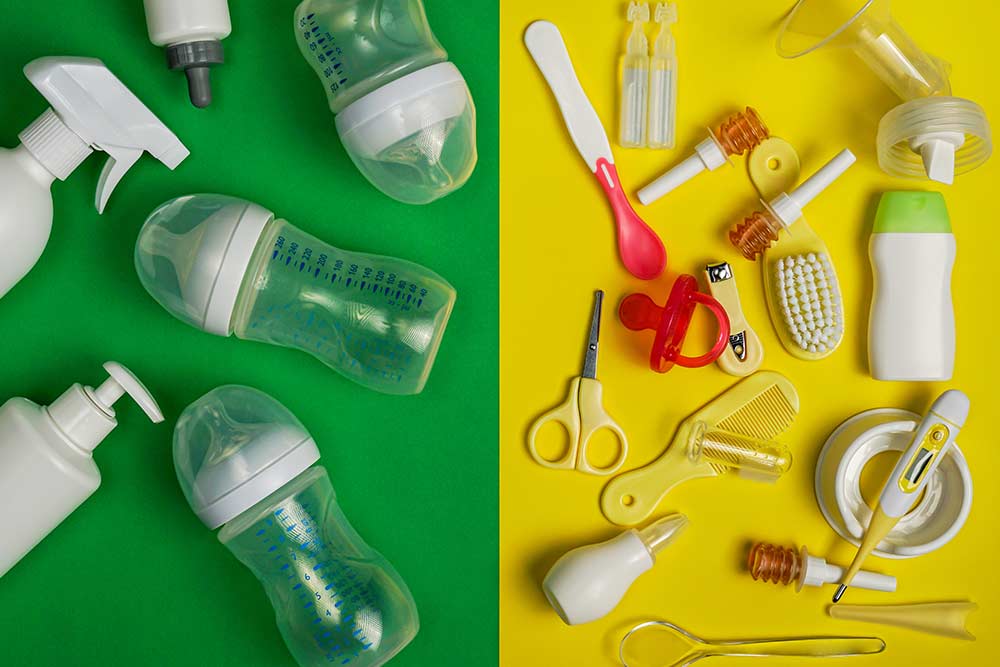
Health essentials
Keeping a regular check on your baby’s health, whether they had a natural birth or C-section, is crucial. With seasonal changes, the baby can fall sick too. So, you must have access to a good paediatrician who can support and guide you through these times. A number of things are also must-haves, so stock up on the following before your baby comes home:
• Baby thermometer
• Baby nail clippers
• First aid kit
• Phone book of pediatric care facilities and doctors around you
The NHS says that you should trust your instincts with regard to your newborn’s health. If your baby is too fussy, cries incessantly or has a temperature, consult a doctor immediately. A few health factors for the baby that you must keep in mind are:
• Keep your home clean, dry and ventilated to avoid fungal and other infections
• Sterilise all things that your baby may come in contact with
• Make sure everyone who holds your baby has washed hands and clean clothes on
• Prevent dampness, mosquitoes, insects, etc from entering the home
• Don’t bathe your newborn until the doctor says it’s okay to do so. Instead, just lightly wash or wipe their face, neck, hands and bottom.
• Don’t let your baby stay in a dirty diaper or wet clothes. Clean, dry and change them immediately.
• When cleaning your baby’s bottom, wipe away from the genitals instead of wiping from the buttock towards the genitals. This will reduce the risk of infections manifold.
• Don’t give the baby any medication unless the doctor recommends it. Stick to the dose recommended, and consult the doctor for any further needs.
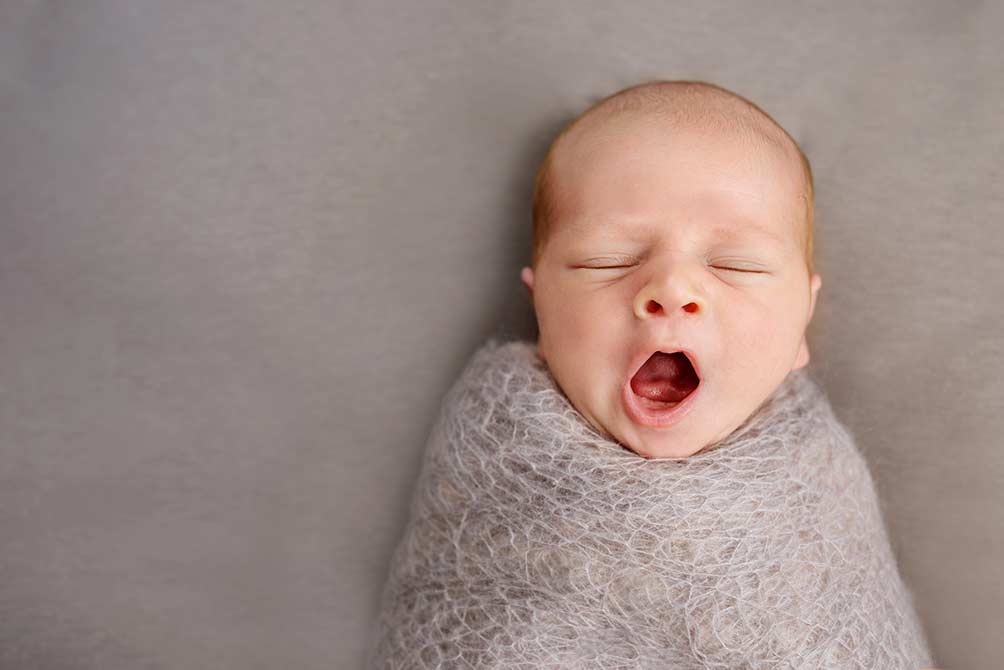
Bedtime essentials
The NHS says that since babies are not acclimatised to a proper sleep-wake time, it’s normal for them to sleep for two-three hours throughout the day and night. This means you have to be able to wake up and sleep with them to be able to care for them properly. As your baby grows up, they will sleep longer during the night and require fewer night-time feedings.
As mentioned above, the bedtime essentials for your newborn aren’t that complicated. All you need to do is ensure that the place they sleep on is firm, clean, dry and not packed with loose sheets or blankets which might accidentally suffocate them. If you live in a region where mosquitoes are prevalent, use a baby net, but only do so while the baby is sleeping and you’re around.
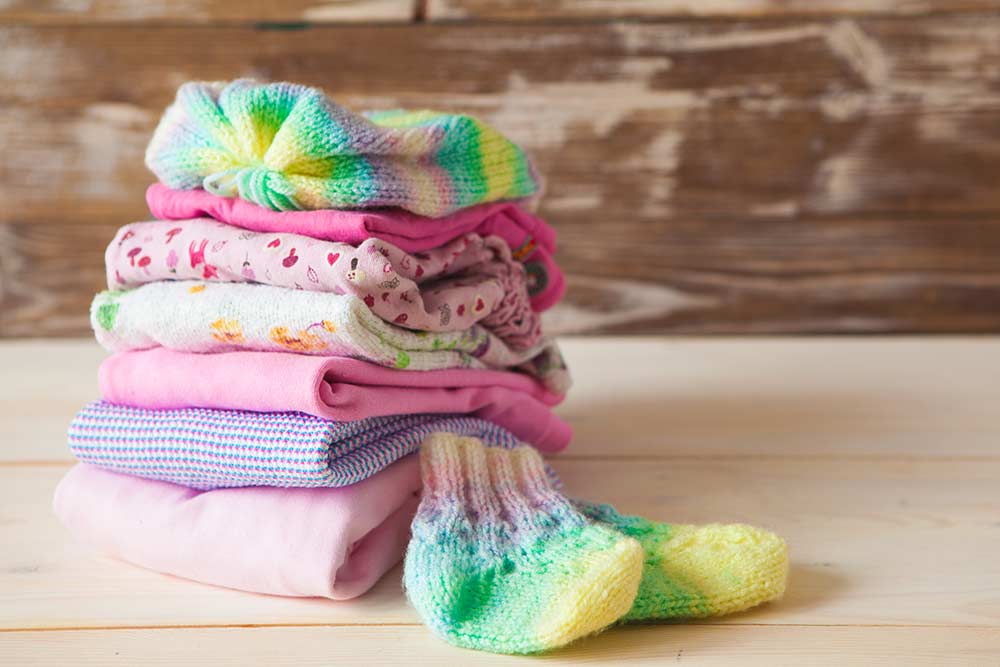
Essentials for every season
Seasons may come and go, but there are a few essentials your baby will need throughout the year. While investing in blankets and some soft woollen cardigans is a good idea, make sure your home is prepared for the season changes, and the room where your newborn stays is properly ventilated and clean no matter what the season. The following are some essentials you will need throughout the year, so stock up on these:
• Nappies and diapers are your baby’s number one need. Even if you’re choosing an eco-friendly option, keep a pack of disposable diapers handy for emergency use.
• When it comes to clothes for a newborn, go for onesies, pants, front-open shirts and cardigans. Keep clean and dry spares handy at all times.
• The hands, feet and head are exceptionally vulnerable areas for a newborn, so stock up on hats, socks and hand mittens.
• Blankets, fitted sheets and firm mattresses are required for your baby’s sleeping area, so ensure you have a change of these at hand.
• You will always need a clean cloth or wipe to clean your baby, so stock up on soft cotton cloths or unscented baby wipes.
• Stock up on soft hand towels, napkins and bibs to help you when you need to burp your baby. These can also help clean any spit-up.
• Even if you are breastfeeding your baby, it’s wise to stock up on a breast pump, feeding bottles and learn how to sterilise them before and after use.
• A changing mat is a plastic sheet that can be travelled with very easily. This is another accessory you’ll need all year through, so make sure you have at least two of these.
• Keeping a baby clean and dry requires plenty of mild detergents and washing soaps to manage the clothes, wipes and even blankets. Ask your doctor or experienced parents for a good recommendation for your newborn.
• While your newborn may not need them immediately, you may want to start investing in other essentials like a baby bathtub, a pram, and a car seat. Ask your doctor which soaps and shampoos you should stock up on when they allow your baby the first bath.
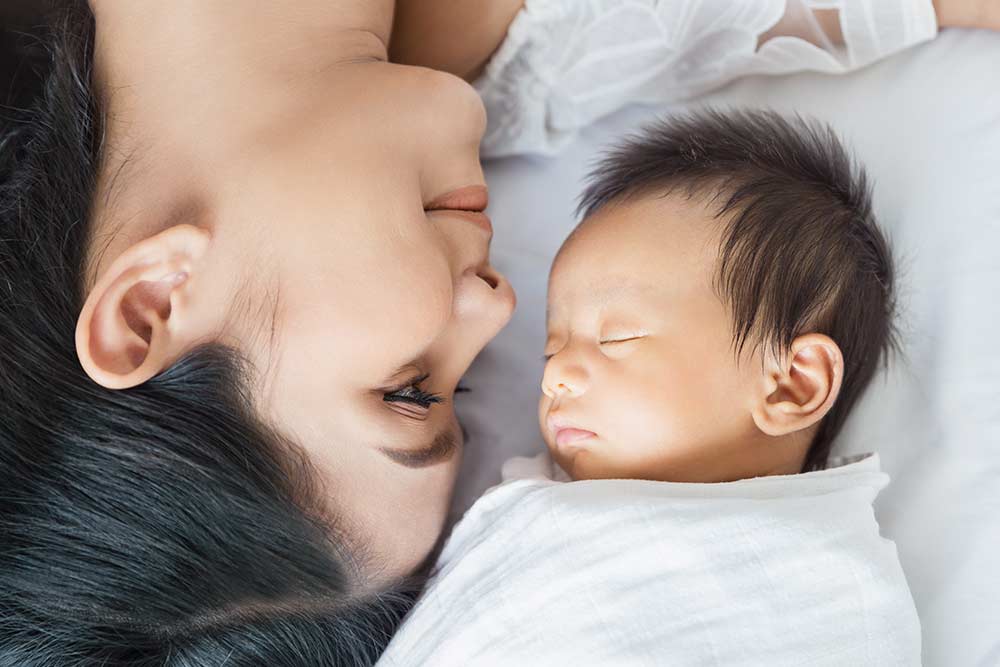
New mom essentials
Even as you’re caring for your newborn, recovering from childbirth is something you need to focus on as well. The first few weeks are therefore essential for you just as much as they are for your baby. Remember, your baby is dependent on you, and if you aren’t doing well, that will affect your bundle of joy as well. So, keep your own care in mind, and enlist support from people like your partner, family and friends. The following are some essentials for every new mom:
• The NHS says that you will be shedding something called lochia after childbirth, whether you have a natural birth or C-section one. So, you will need maternity pads to deal with this type of bleeding.
• Multiple feedings for your baby also mean the risk of chapped nipples and sore breasts. Ask your doctor if there is a nipple cream you could apply, but remember to remove it and sterilise your breasts before your baby’s next feeding.
• Aches and pains may be common after childbirth, so keeping heat and cool packs handy is a good idea. Ask your doctor which one is suited for the kind of pain you have.
• Your body changes during pregnancy, and after it, as your body transitions back, you need proper support. So, get maternity bras, comfortable front-open clothes and other clothing essentials that help you nurse and feed your baby with ease.
• For many women, the post-partum period is one where bowel movements and digestion are affected. Ask your doctor for safe stool softeners, fibers and other dietary changes that can help with this issue.
• Your post-partum diet is just as important as the one you need during pregnancy. Ensure your diet is balanced, healthy and one that focuses on healing. Consult a nutritionist or dietician for a customised diet suited to your personal needs.
• Supplementation is another health essential for new moms, especially when it comes to vitamins and minerals like Vitamin D, Calcium, Iron and folate. Ask your doctor or nutritionist about recommendations.
• While you might feel exhausted, it’s important to get back on your feet and get fit after your pregnancy. So, start small but get at least half an hour of exercise every day. Start with light exercises and yoga asanas, and once your bleeding reduces, you can gradually start walks and more exercises. Consult your doctor to set a timeline for exercises.
• Perhaps the most important thing a new mom craves is sleep. Not getting enough sleep will delay your recovery and affect your baby just as much it will impact your long-term health. So, ask your partner, family and friends to step in during the first few weeks. Another idea is to sleep and wake with the baby, which will mean that you get multiple short naps during the day and night—which is still better than accruing a huge sleep debt.
• Pay attention to your mental health. Postpartum depression does affect new mothers, and it’s best to be open about and aware of your emotions and needs right now rather than letting any issue get too big to be managed. Reach out to your partner, family and friends for mental health support, but don’t shy away from talking to your doctor or a mental health professional if you need to.
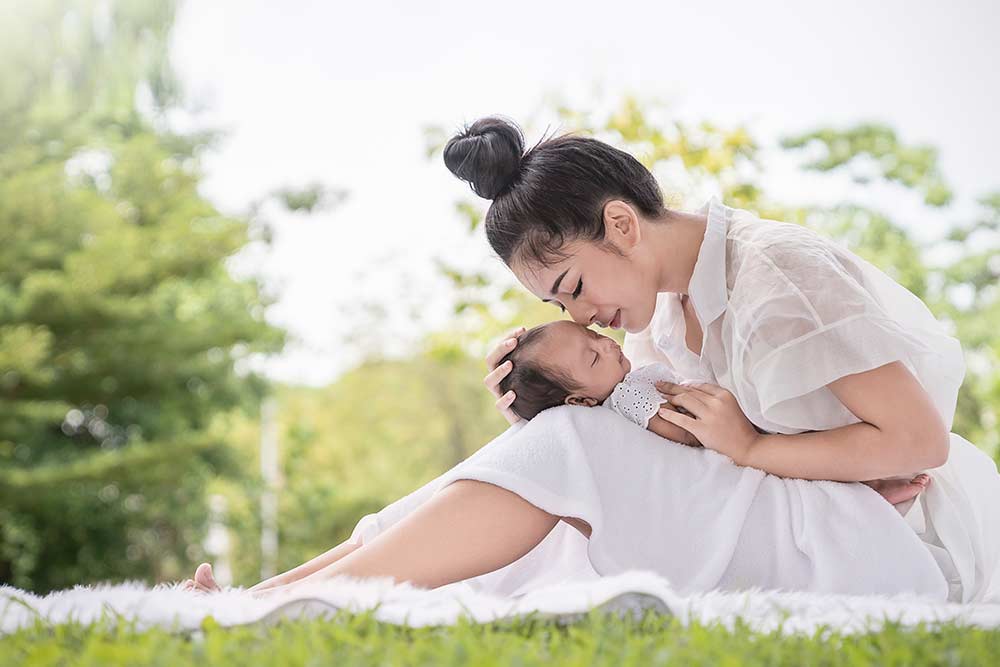
Preparing To Step Out
While you may not be venturing out with your newborn immediately after their birth, it makes sense to be prepared for emergencies and have a go-bag with some essentials ready. The go-bag should have:
• Extra diapers
• Packs of wipes
• Two changes of clothes, which should be clean and dry
• A clean blanket
• Emergency medications
Conclusion
Like any new phase of life, parenthood comes with its own set of rewards and challenges. Being equipped with information regarding this period—and more importantly, enlisting the help of family and friends—can help immensely. Remember, you may be a parent, but you don’t have to do it all alone. Caring for yourself is very important, because you are your newborn’s support system.
Reading up on what your baby needs is just as important as it is to keep your doctor and paediatrician involved. Your doctor is supposed to address your queries, so don’t shy away from asking everything you need to know. Parenthood can also put a strain on your finances, so take a firm hand on how to manage these. This apart, caring for your newborn should be made easy with the above guide. What other information would you require to make managing your newborn easier? Let us know in the comments below.